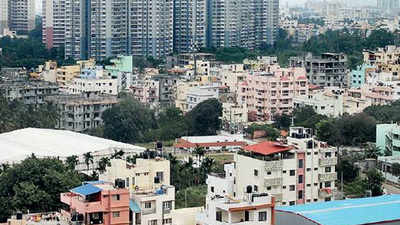The Times of India 01.08.2012
Court extends stay on local body tax
NASHIK: The Bombay high
court on Tuesday extended the stay on the state government’s decision to
introduce local body tax (LBT) within the limits of the Nashik Municipal Corporation (NMC) until August 9 which is also the scheduled date for the the next hearing.
The petition filed by Maharashtra Navnirman Sena (MNS) corporator Gulzar Kokani and Sena opposition leader
in the NMC Sudhakar Badgujar, against the state government’s decision
to introduce local body tax (LBT) as a substitute for octroi in Nashik,
was heardd on July 31 in the Bombay High Court.
In its order,
the bench of high court judges, Mrudula Bhatkar and S S Bobade, stayed
the state’s decision to of introduce LBT in the city. Earlier, both MNS
and Shiv Sena
filed separate petitions in the High court. But both petitions were
clubbed as one as both petitions highlighted the same points.
“As per rules, any new tax system must be announced by February 20,
before the commencement of the new financial year and the municipal
commissioner must publicly announce the new tax rates and get it passed
at a special general body meeting. But the state government has not
resorted to any such procedure,” said the MNS corporator Gulzar Kokani.
Badgujar explained why the introduction of LBT could hamper the
financial situatin of the NMC. “The revenue collected through sales tax
from Nashik district is around Rs 1,100 crore, including Rs 800 crore
from Nashik city. Sales tax is collected in four slabs 5% , 12%, 20% and
25%. At this rate, revenue of only Rs 299 crore will be collected
through LBT within the limits of the NMC. The way the NMC administration
is collecting octroi, it is expected to collect Rs 700 crore in the
current financial year. The sudden introduction of LBT will affect the
financial position of the NMC,” Badgujar said.
“Moreover, the
state government had cancelled octroi in some municipal councils in the
state on May 1, 1999, and had started giving administrative grant to
compensate the losses caused due to the cancellation of octroi. Since
then, the state government has been giving annual administrative grant
to these municipal councils, with 10% rise in the grant every year. But
in Nashik, the state government cancelled octroi and introduced LBT as
an alternative. Actually, we believe that the state government must have
taken the same decision for Nashik, which they had taken with the other
municipal councils in the year 1999,” Badgujar added.
court on Tuesday extended the stay on the state government’s decision to
introduce local body tax (LBT) within the limits of the Nashik Municipal Corporation (NMC) until August 9 which is also the scheduled date for the the next hearing.
The petition filed by Maharashtra Navnirman Sena (MNS) corporator Gulzar Kokani and Sena opposition leader
in the NMC Sudhakar Badgujar, against the state government’s decision
to introduce local body tax (LBT) as a substitute for octroi in Nashik,
was heardd on July 31 in the Bombay High Court.
In its order,
the bench of high court judges, Mrudula Bhatkar and S S Bobade, stayed
the state’s decision to of introduce LBT in the city. Earlier, both MNS
and Shiv Sena
filed separate petitions in the High court. But both petitions were
clubbed as one as both petitions highlighted the same points.
“As per rules, any new tax system must be announced by February 20,
before the commencement of the new financial year and the municipal
commissioner must publicly announce the new tax rates and get it passed
at a special general body meeting. But the state government has not
resorted to any such procedure,” said the MNS corporator Gulzar Kokani.
Badgujar explained why the introduction of LBT could hamper the
financial situatin of the NMC. “The revenue collected through sales tax
from Nashik district is around Rs 1,100 crore, including Rs 800 crore
from Nashik city. Sales tax is collected in four slabs 5% , 12%, 20% and
25%. At this rate, revenue of only Rs 299 crore will be collected
through LBT within the limits of the NMC. The way the NMC administration
is collecting octroi, it is expected to collect Rs 700 crore in the
current financial year. The sudden introduction of LBT will affect the
financial position of the NMC,” Badgujar said.
“Moreover, the
state government had cancelled octroi in some municipal councils in the
state on May 1, 1999, and had started giving administrative grant to
compensate the losses caused due to the cancellation of octroi. Since
then, the state government has been giving annual administrative grant
to these municipal councils, with 10% rise in the grant every year. But
in Nashik, the state government cancelled octroi and introduced LBT as
an alternative. Actually, we believe that the state government must have
taken the same decision for Nashik, which they had taken with the other
municipal councils in the year 1999,” Badgujar added.

